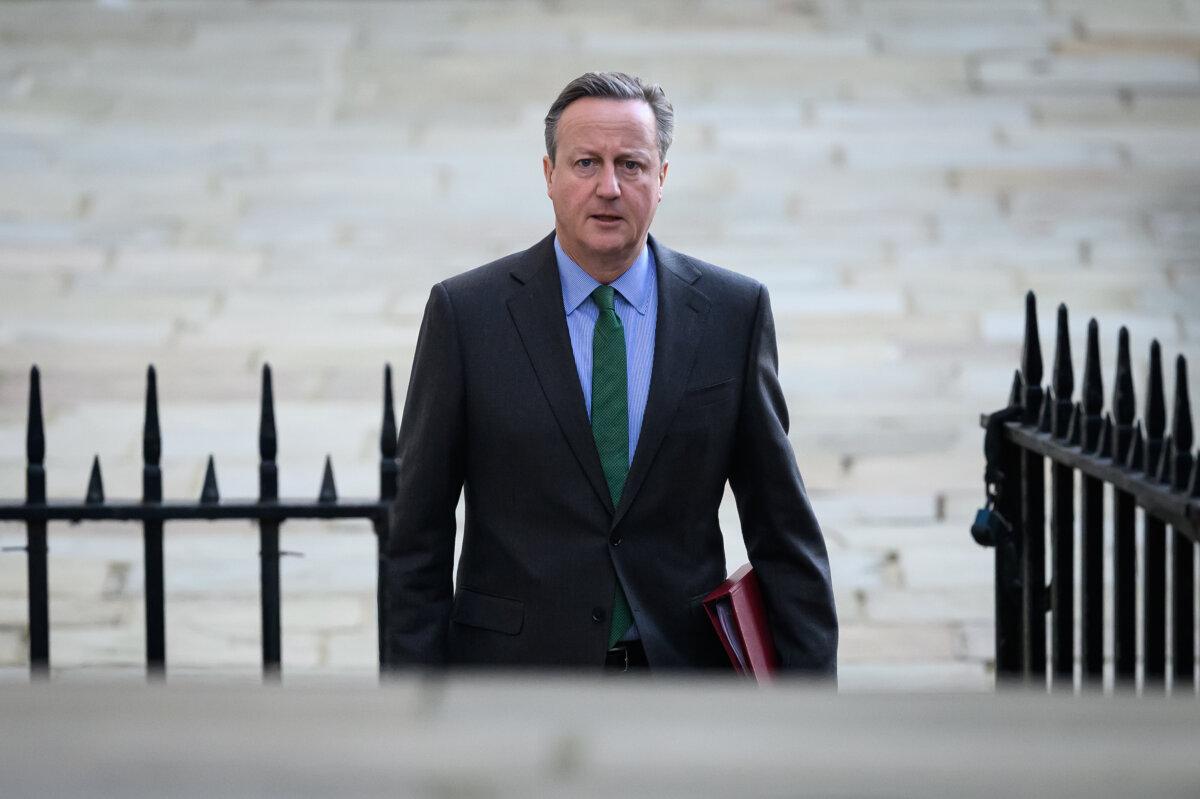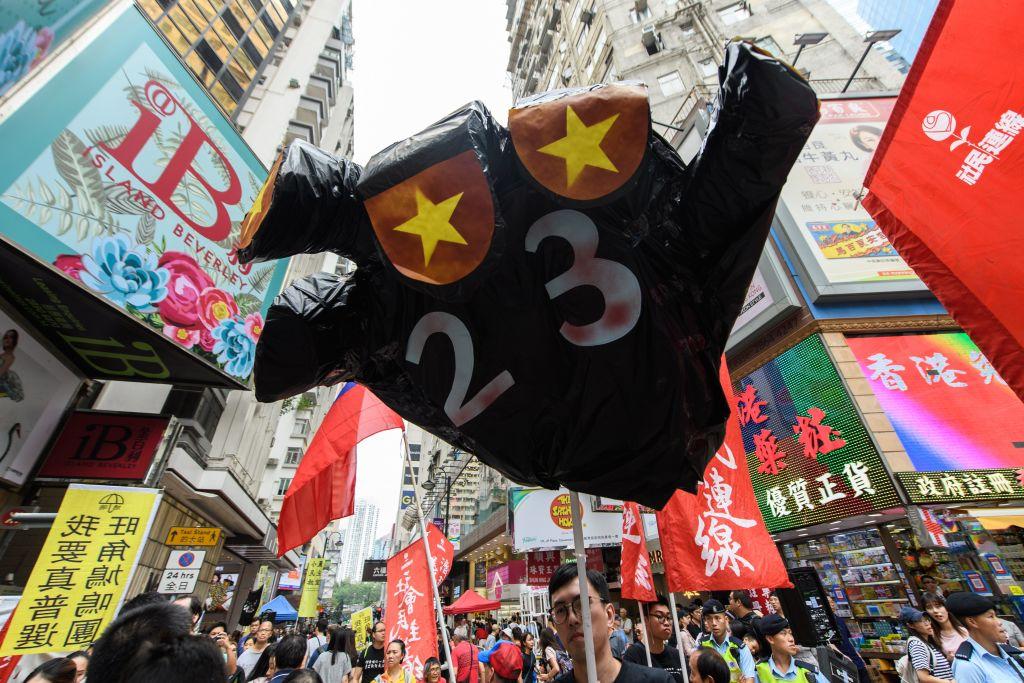The UK and the European union on Tuesday condemned Hong Kong’s new rubber-stamped national security law, saying it would further erode freedoms in the financial hub and may affect diplomatic missions.
British Foreign Secretary Lord Cameron said the law will “have far-reaching implications” for Hong Kong residents, including foreign diplomats, and “enable the continuing erosion of freedoms of speech, of assembly, and of the media.”
The European Union also criticised the law, raising concerns over its “sweeping provisions and broad definitions.”
In statements issued on Wednesday, Beijing’s foreign affairs representative in Hong Kong accused the UK and the EU of “smearing” the law and “interfering” with China’s “internal affairs.”
The controversial Safeguarding National Security Bill, known as Article 23, was passed unanimously on Tuesday by Hong Kong’s Legislative Council, a 90-seat body now dominated by politicians backed by the Chinese Communist Party (CCP) following its “patriots only” overhaul of the city’s electoral system.
Article 23 in Hong Kong’s Basic Law, which was enacted after the former British colony was handed over to Beijing, mandated that the authorities write Hong Kong’s own national security code.
However, an attempt to do so in 2003 led to massive protests, leading the government to shelve the proposal.
After pro-democracy protests brought hundreds of thousands of Hongkongers to the streets in 2019, Beijing imposed a national security law to punish four major crimes: secession, subversion, terrorism, and collusion with foreign forces.
On Jan. 30, Hong Kong authorities launched a consultation on making the legislation. The bill was first published on March 8 and become law 11 days later.
The law punishes five offences: treason, insurrection, theft of state secrets and espionage, destructive activities endangering national security, and external interference.
After the law was adopted, Lord Cameron said: “This new law, rushed through the legislative process, will have far-reaching implications for all of these areas.
“The broad definitions of national security and external interference will make it harder for those who live, work, and do business in Hong Kong,” the foreign secretary said.
“It fails to provide certainty for international organisations, including diplomatic missions, who are operating there.
“It will entrench the culture of self-censorship which now dominates Hong Kong’s social and political landscape, and enable the continuing erosion of freedoms of speech, of assembly, and of the media.”

Lord Cameron said the law will “further damage the rights and freedoms” in the city, and undermine Hong Kong’s implementation of “binding international obligations including the Sino–British Joint Declaration and the International Covenant on Civil and Political Rights.”
Under the Sino–British Joint Declaration, the Chinese regime promised not to remove Hong Kong’s self-autonomy and the rule of law for 50 years, until 2047.
However, the regime has effectively torn up the treaty, calling it a “historical document.”
Since the Beijing-imposed national security law took effect in 2020, the UK has declared a number of times that the Chinese regime was in breach of the declaration, and opened up a humanitarian visa route for British National (Overseas) passport holders who wish to flee Hong Kong.
But the passing of the new national security law itself “may or may not” technically count as a breach of the treaty because the law was passed by the Legislature in Hong Kong, Foreign Office minister Andrew Mitchell said on Wednesday.
Meanwhile, the EU and the United Nations also hit out at Hong Kong’s new security law.
“It is alarming that such consequential legislation was rushed through the legislature through an accelerated process, in spite of serious concerns raised about the incompatibility of many of its provisions with international human rights law,” said the U.N.’s High Commissioner for Human Rights Volker Turk in a statement released on Tuesday.
The European Union said in a separate statement on Tuesday it was concerned about the “potential impact on the rights and freedoms of the people of Hong Kong” and the bill had the potential to “significantly” affect the work of the EU’s office as well as organisations and companies in Hong Kong.
“This also raises questions about Hong Kong’s long-term attractiveness as an international business hub,” it said.
The CCP responded on Wednesday by telling the UK and others to stop interfering.
In two statements published on Wednesday, a spokesperson for the Commissioner’s Office of the Ministry of Foreign Affairs in Hong Kong expressed “strong indignation and resolute opposition” over the UK and the EU’s statements.
The spokesperson claimed that the UK doesn’t have the right to monitor the implementation of the Sino–British Joint Declaration and accused the UK of incitement and having a “coloniser mentality.”







